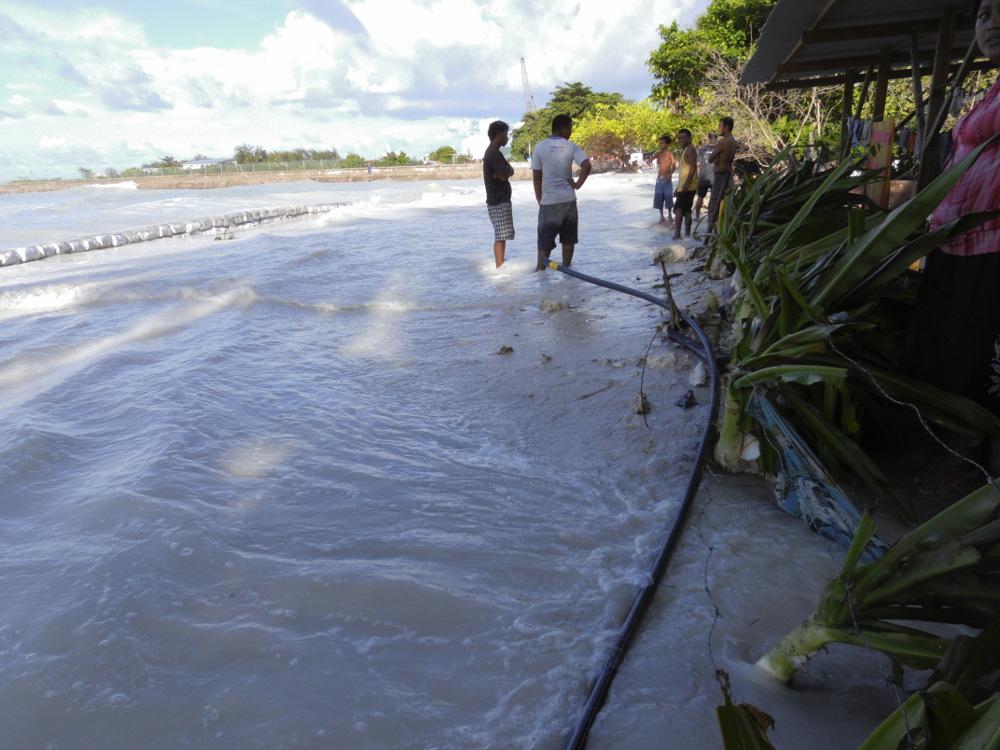The rapid ratification of the Paris Agreement was welcomed by all Pacific nations one month ago and now as it enters into force, the Council of Regional Organisations in the Pacific stands ready to assist with the implementation.
“The global momentum for change has been inspiring” said Secretary General of the Pacific Islands Forum Dame Meg Taylor, “maintaining that momentum is going to be the challenge from here. Ratification now requires a focus on tangible global actions to support the Paris Agreement.”
Since the announcement that over 55 countries, representing 55% of global emissions had ratified the Paris Agreement, there has been considerable progress in other key climate related areas.
The Parties to the Montreal Protocol agreed to an ambitious phase down of hydrofluorocarbons and the International Civil Aviation Organisation agreed to establish an emissions trading pilot scheme for air travel.
The implementation of the Paris Agreement is a central agenda item for the UN Climate Change Convention meeting (COP 22) which begins today in Marrakesh, Morocco.
The Pacific is well-represented with 13 Pacific Island delegations and representatives of four CROP agencies participating, namely the Secretariat of the Pacific Regional Environment Programme (SPREP), Pacific Islands Forum Secretariat, University of the South Pacific and the Pacific Community (SPC).
“While the Paris Agreement is now in force, the key steps are to ensure it is operationalised and implemented at the national level so our Pacific islands feel the positive effects of this global treaty, we will all work together to support our islands,” said Mr Kosi Latu, Director General of the SPREP.
The three pillars or key action areas of the Paris Agreement are (1) Mitigation (Articles 3-6); (2) Adaptation (Article 7); and (3) Loss & Damage (Article 8). For tangible action in those 3 key pillars, the following facilitation and support modalities are important for the implementation of the Paris Agreement: (1) Climate Finance (Article 9); (2) Technology Transfer (Article 10); Capacity Building (Article 11); and Education (Article 12).
“The University of the South Pacific’s mandate is in the areas of Capacity Building and Education and this is where USP can directly support Pacific Islands Parties to the United Nations Framework Convention on Climate Change (UNFCCC)”, said Deputy Director of USP’S Pacific Centre for Environment and Sustainable Development (PaCE-SD), Dr Morgan Wairiu.
It is important to recognise that the ratification of the Paris Agreement is only the beginning of a long, hard road to reduce harmful greenhouse gas emissions, the Pacific Community Director-General, Dr Colin Tukuitonga, said.
“Pacific nations must continue to exercise commitment and urgency in order to limit the negative impacts of climate change. This includes taking action to reduce the region’s heavy reliance on fossil fuels, for example by meeting obligations under the Majuro Declaration on Renewable Energy,” Dr Tukuitonga said.
Pacific leaders have continued to call for simpler access to global financing facilities for mitigation and adaptation activities in their countries, and CROP agencies are actively supporting this.
Dame Meg Taylor also reflected on value of the recent endorsement of the Framework for Resilient Development in the Pacific to support implementation. “The new framework identified key actions that will guide CROP agencies to support Pacific Islands Countries respond to the risks and challenges posed by climate change.”
The Pacific Climate Change Centre will be a shared resource and regional climate hub for inclusive collaboration to meet the adaptation and mitigation priorities of Pacific island countries and territories, is one avenue to provide support for implementation of the Paris Agreement over the years to come.
Funded by the Government of Japan in partnership with the Government of Samoa and SPREP, the new Pacific Centre will be hosted in Samoa. It will be built and ready for action by mid-2018.
Media contacts:
SPREP: Nanette Woonton (attending COP 22) [email protected]
SPC: Jean-Noel Royer, Communication Officer, [email protected] or +687 87 70 63
Useful link:
COP 22 official website
